News
Cultism As A Misnomer
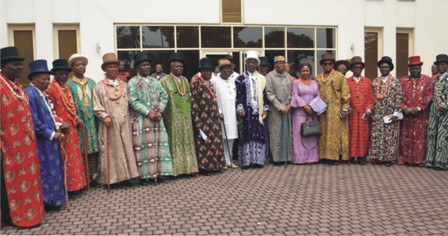
A news report in The Tide (Wed. 30/10/2019) that “158 Cultists Surrendered Arms in Emohua”, makes it needful to throw some light into the cult phenomenon. It is in the religious angle that the cult phenomenon rightly belongs, representing break-away extremist, radical, resistant groups which can resort to terrorism to defend their beliefs and methods. Leaders of such break-away groups often claim to have some calling or illumination directing them to veer into unusual practices and beliefs. Cultism relates to epistemology.
In Nigeria currently, there are many such break-away sects who claim to have some unusual powers for healing, exorcism, miracles and wonders. Through serious investigations, one finds that there is an element of sublimation whereby the generative power is diverted away from sex and procreation into psychism. There are such groups like the Illuminati, the case of Rev. Jim Jones who led his followers into mass suicide in Guyana; Emmanuel Swedenborg (1688-1772) who went into exploration of the psychic world, etc.
The case of Joan of Arc (1412-31) was a combination of altered state of consciousness (ASC) and anamnesis. Anamnesis is the recall of experiences of thousands of years ago, which can also come about through regressive hypnosis. Some people get fascinated with these claims and the exploration of the psychic world. Many who step too far into such project often lose their mind. Regression into insanity or witch-craft is an open invitation.
Really worrisome aspects of cultism come from secret activities of the security community and faddishness of fans of great celebrities in music, sports, films and other charismatic heroes. Despite the coming and going of chief executives in governments, national security outfits constitute a cult of cryptocrats of which only the topmost hierarchy are the patrons. Through research and experiments, series of brain-control techniques and mechanisms have emerged, through which means anyone can become a zombie.
Without going into how the cryptocracy works, let it suffice to say that secret service operatives world-wide enjoy a wide immunity and anonymity, making it possible for them to reach anyone and do anything but get away with it. What is cult if not secrecy, invincibility and mysteriousness!
From the angle of faddishness, youths can easily be influenced and carried away by charismatic stars and celebrities. Groups of fans soon turn into clubs, misnamed cults, whereby passions and fashions grow into attitudinal change, with some attendant change in mindset and life-style. The possibility of such groups of impressionable youths having a god-father, with cash and other largesse to dispense, can provide wide channels of expression.
There are various international groups fishing around for youths to entice for various purposes, including the possibility of injecting “occult blood” into them through various electronic means. Some of Nigerian youths, in and outside universities, as well as various political office holders, are not quite themselves. There are many factors responsible for behavioural aberrations among Nigerian youths.
From the angle of criminal fraternity, cultism develops because of devotion and deep commitment to what the patrons and barons present as the ideal. Because oath-taking is involved for the purposes of secrecy and protection, minions hired for covert activities are afraid to pull-out when they know more of what they are into. Fields of criminal operations include drug peddling, arms trade, smuggling, oil theft, terrorism including kidnapping for ransom, etc.
What we call cultism is the enthronement of gangsterism as a system of governance, whereby hustlers for political power engage and use groups of youths as vanguards and support team at grassroots levels. With money, arms and oath-taking, coupled with some fetish rituals, devotion, commitment, secrecy and solidarity develop among the footsoldier, misnamed cultists.
Recruitment and brain-washing of some youths became common during the Nigerian Civil War, whereby local youths, out of fear and the desire for protection, served groups of soldiers in some unethical errands. Even now, there is a belief in some quarters that force, gangsterism and arms-twisting are essential means to drive the society. Existence of various contending interest groups, coupled with mass docility, resulted in the creation, arming and buying of various groups of gangsters, misnamed as cult groups.
It is an interesting and instructive field of journalistic research to understand the antics and operational mechanism of cultism in Nigeria. For the younger ones who would fear to die, there is a limit they can go. Cultism has more to do with devotional commitment to some religious ideals, and for some people, these would include use of terrorism and gangsterism to achieve some goals. Thus, where the end justifies the means, no harm is done.
Perhaps, the features of belief, devotion, commitment, secrecy and solidarity account for the use of the term “Cult” for all kinds of extremism. Thus, cultism as a belief system would include all groups of terrorists and gangsters in the domains of religion, politics, crimes, etc, who see the justice of their methods in the end result of their activities. This idea cannot sell in a sane and democratic society.
The use of unconventional drugs, weeds, brute force, secrecy and chicanery to get results through the abuse of the human mind and free will, cannot be described as right or ethical. Various studies in the ways that power has been abused in human history reveal quite shocking strategies, ranging from abuses of the human mind and body, to the abuse of the Name of God. In the political front, alliances and cabals have used power for personal and group benefits, at the expense of the masses. From the angle of symbolism, cult is defined as the use of mask to carryout tasks and for ceremonial purposes. Include Yahoo boys and their mothers.
News
Ibas Inaugurates RSIEC, Service Commissions, Healthcare Board In Rivers …Charges Appointees To Embrace Principles Of Service
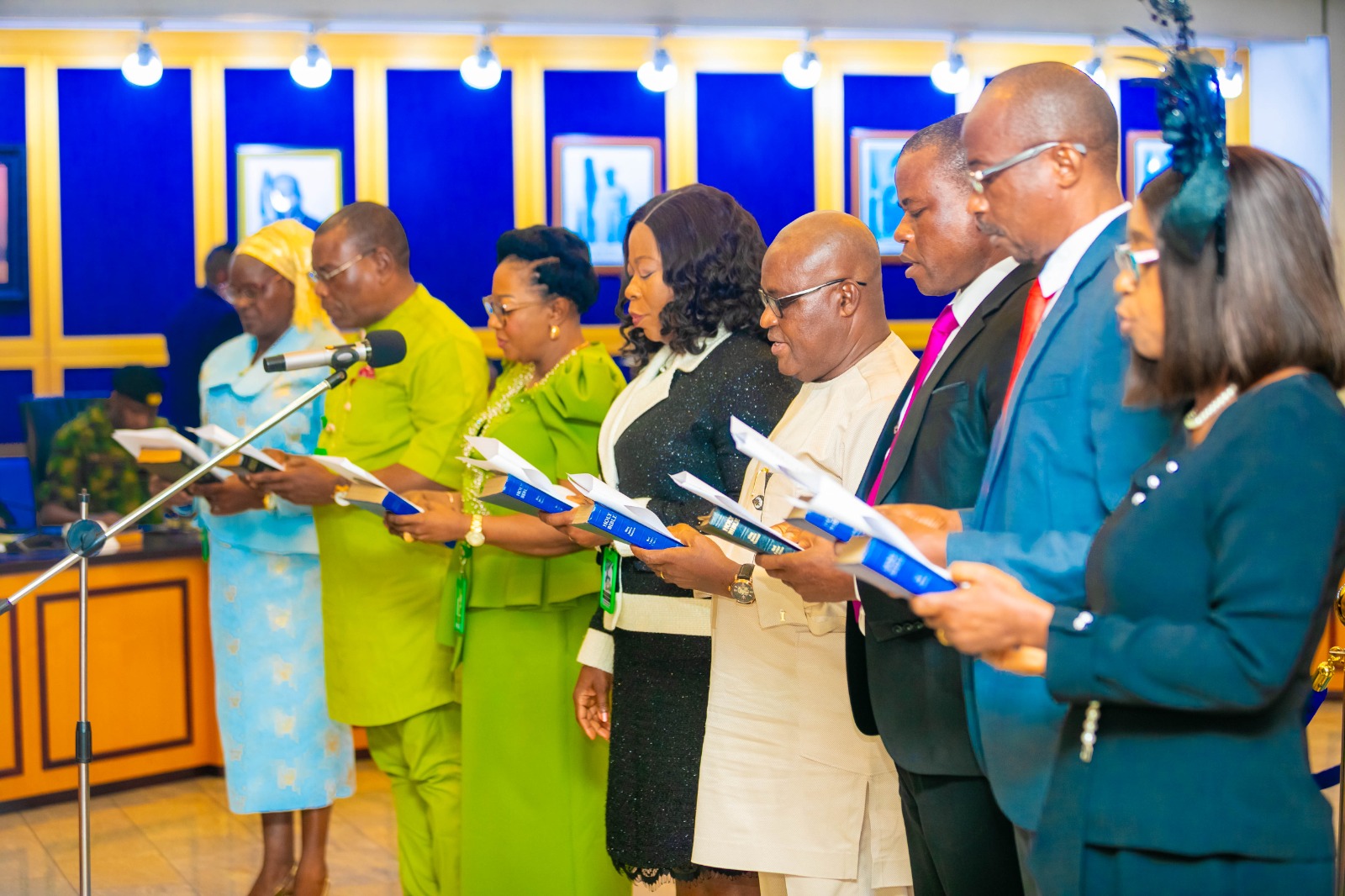
The Administrator of Rivers State, Vice Admiral (Rtd) Ibok-Ete Ibas, has charged newly appointed Board members to uphold the highest standards of discipline, competence, integrity, and unwavering dedication in their service to the State.
He emphasized that such commitment is critical to stabilizing governance, restoring democratic institutions, and advancing the principles of good governance in the State.
This was contained in a statement by the Administrator’s Senior Special Adviser on Media, Hector Igbikiowubo on Monday.
Ibas issued the charge on Monday while inaugurating the reconstituted Rivers State Independent Electoral Commission (RSIEC), Rivers State Civil Service Commission, Rivers State Local Government Service Commission, and the Rivers State Primary Health Care Management Board at Government House, Port Harcourt.
The Administrator urged the new appointees to embrace their roles with diligence, patriotism, and a commitment to transforming Rivers State through excellent service.
Addressing the Chairman and members of RSIEC, Ibas underscored their pivotal role in ensuring credible local government elections that reflect the will of the people.
“Your task is clear but demanding: to conduct free, fair, transparent, and credible elections at the grassroots level. You must resist bias, favoritism, and external interference while restoring public confidence in the electoral process,” he stated.
“The independence of your actions is crucial to sustaining peace, stability, and grassroots governance. I urge you to act with fairness, impartiality, and professionalism—even in the face of difficult choices,” Ibas added.
The Sole Administrator also charged the Rivers State Civil Service Commission on the need to eliminate mediocrity and foster a culture of excellence through merit-based recruitment, training, and promotions.
“The civil service must transition from favoritism to competence, integrity, and accountability. Your commission will lead reforms, including digital transformation and standardized practices across ministries, departments, and agencies,” he said.
He disclosed that extensive training programmes are underway, with a committee set up to overhaul the public service framework for greater efficiency.
Meanwhile, Ibas urged the Rivers State Local Government Service Commission to ensure professionalism and discipline in local government administration.
“As the closest tier of government to the people, you must drive reforms that insulate the system from politics and mediocrity. Your mandate includes merit-based recruitment, training, and enforcing standards for effective service delivery,” he stated.
In the same vein, the Administrator charged the Rivers State Primary Health Care Management Board with revitalizing healthcare delivery across the state’s 23 local government areas.
“Primary healthcare is the foundation of a sustainable health system. Your board must ensure facilities are adequately staffed, equipped, and operational focusing on maternal health, immunization, malaria control, and community health services,” he said.
He emphasized data-driven operations, incentives for rural health workers, and restoring the referral system to improve healthcare access.
He also assured the Board of sustained government support, including funding, for the effective discharge of their mandates but warned that board members would be held accountable for their performance.
The newly inaugurated members include: RSIEC: Dr. Michael Ekpai Odey (Chairman) with Prof. Arthur Nwafor, Prof. Joyce Akaninwor, and others as members.
Civil Service Commission: Dr. Livinus Bariki (Chairman), Amb. Lot Egopija, Mrs. Maeve Bestman, and others.
Local Govt. Service Commission: Mr. Isreal Amadi (Chairman), Rear Adm. Emmanuel Ofik (Rtd), Dr. Tonye Pepple, and others.
Primary Health Care Board: Dr. Dawari George (Chairman), Dr. Chituru Adiele (Executive Director), Prof. Kaladada Korubo, and representatives from key ministries.
News
Rivers PDP Debunks Sale Of LGA Election Forms
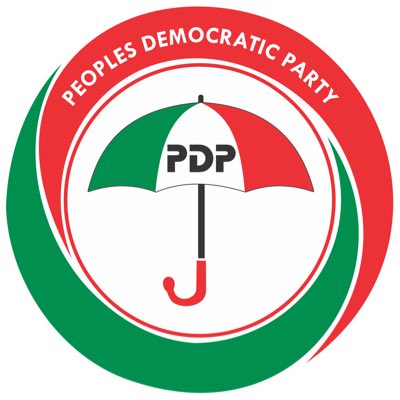
The Publicity Secretary of the Peoples Democratic Party (PDP) in Rivers State, Dr. Kenneth Yowika, has debunked claims that the party has commenced sale of forms for chairmanship and councillorship elections across the 23 local government areas of the state.
Yowika made the rebuttal in a statement made available to newsmen on Wednesday, describing the publication on the social media as baseless and untrue.
He urged members of the PDP to disregard the claim, saying that official communication regarding the sale of forms would be disclosed through the appropriate channels.
“With reference to information trending on social media, it has been falsely claimed that the sale of forms for Chairmanship and Councillorship elections in the 23 Local Government Areas (LGAs) of Rivers State will begin soon.
“However, the party has firmly denied these rumours, stating that they are baseless and untrue.
“The party has its own established methods of reaching out to its numerous supporters.
“The People’s Democratic Party, a law-abiding organisation, will patiently await the release of guidelines from the recently inaugurated Rivers State Independent Electoral Commission (RSIEC) before considering any sale of election forms.
“The PDP is urging its members to remain calm as official communication regarding the sale of forms will be disclosed through appropriate channels,” the statement read.
Enoch Epelle
News
South-South contributes N34trn to Nigeria’s economy in 2024 – Institute
Prof. Pius Olanrewaju, President of the Chartered Institute of Bankers of Nigeria (CIBN), has stated that the South-South region contributes N34 trillion to country’s economy in 2024.
He made the remark at the South-South Zonal Banking and Finance Conference in Calabar, yesterday.
He spoke on the theme, ‘’Building An Inclusive South-South: Economic Diversification as a Catalyst For Development.’’
Olanrewaju, who quoted the data from the Cable Data Index, said the feat was more than 21 per cent of Nigeria’s real Gross Domestic Product (GDP).
The president described the growth as ‘’ impressive,’’ saying that it was not driven by oil alone but significant expansions in trade, services, and the creative industries.
According to him, to fully harness this potential, coordinated financial, technological, and policy support is essential.
“As we work to reposition the South-South for broad-based prosperity, the financial system must play a central role, not merely as a source of capital, but as a catalyst for innovation, ideas incubation, and inclusive economic growth.
“This conference, therefore, provides a strategic opportunity for stakeholders to reimagine the South-South economy, not merely as a resource belt, but as a region of diverse capabilities and resilient enterprises.”
Olanrewaju added that Nigeria must move beyond old models and chart a new course for the development of the South-South region, where financial institutions and stakeholder collaborate to diversify the economy for shared prosperity.
He, however, commended Gov. Bassey Otu for his pledge of land for CIBN Secretariat in Cross River and being the first sitting governor to willingly undergo and complete the Chartered Bankers Programme.
On his part, Gov. Otu said that the conference discussion on the economic diversification in South-South region was timely against the backdrop of global trade and economic volatility that was affecting the nation’s economy.
Represented by his deputy, Mr Peter Odey, Otu said the South-South region must now act with urgency to diversify its economy while leveraging its shared natural endowment in agriculture and extractive resources.
“This conference must help develop tailored financial solutions that reflect the unique strengths and realities of states like Cross River in the south-south.
“Diversification should be evidence-based and must be backed not just by financial advice but project focused financing and real investment support,” he noted.
He said that Cross River had taken the bold step to invest in its agricultural sector by launching an Agro processing hub.
Otu further said that the state had invested in aviation by acquiring more aircrafts for Cally Air, construction of the Bakassi Deep Seaport and injecting N18 billion in its tourism sector.
Similarly, Mr Tolefe Jibunoh, Cross River Branch Controller of the Central Bank of Nigeria (CBN) said that the region was blessed with natural resources, cultural diversities and immense human potentials.
Jibunoh, who was represented by Mr Segun Shittu, Head, Currency Control Office, CBN, Calabar, noted that strategic diversification could unlock unprecedented opportunities for growth in the region.
He added that the CBN remained steadfast to maintain monetary possibilities and promote a sound financial system as a catalyst for sustainable economic development for the benefit of all.
-

 Politics1 day ago
Politics1 day agoINEC Trains Political Parties Officials On ICNP Use Ahead By-Elections
-

 Business1 day ago
Business1 day agoReplace Nipa Palms With Mangroove In Ogoni, Group Urges FG, HYPREP
-
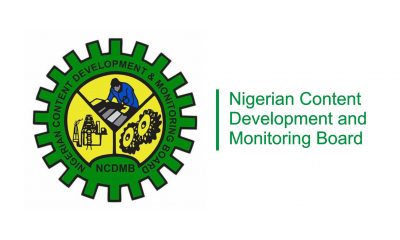
 Business23 hours ago
Business23 hours agoNCDMB, Dangote Refinery Unveil JTC On Deepening Local Content
-
Niger Delta1 day ago
C’River Hands Over Rubber Plantation to Private Company
-
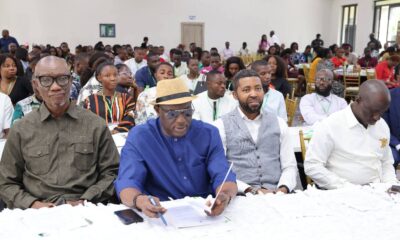
 Nation1 day ago
Nation1 day agoHYPREP Reaffirms Support For Ogoni Youths …Organises Workshop For Undergraduates
-

 Business1 day ago
Business1 day agoIndustry Leaders Defend Local Content, … Rally Behind NCDMB
-
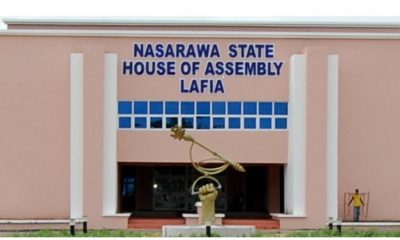
 Politics23 hours ago
Politics23 hours agoNasarawa Speaker Advocates Conducive Executive/Legislature Relations
-
Niger Delta1 day ago
Delta Leverages On Extensive River Networks To Drive Blue Economy

